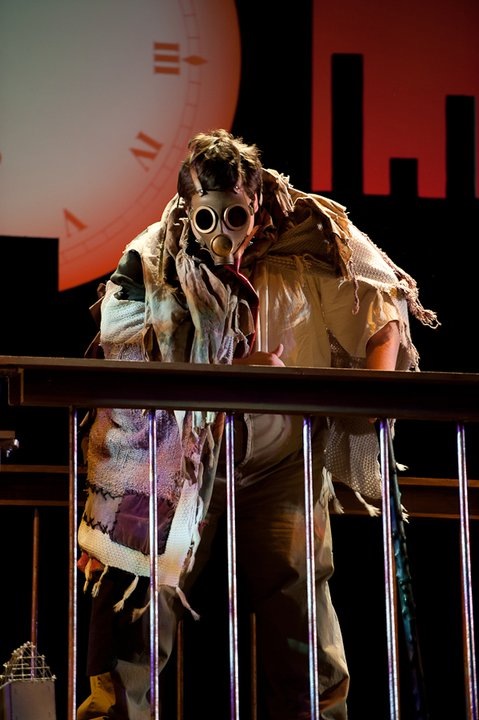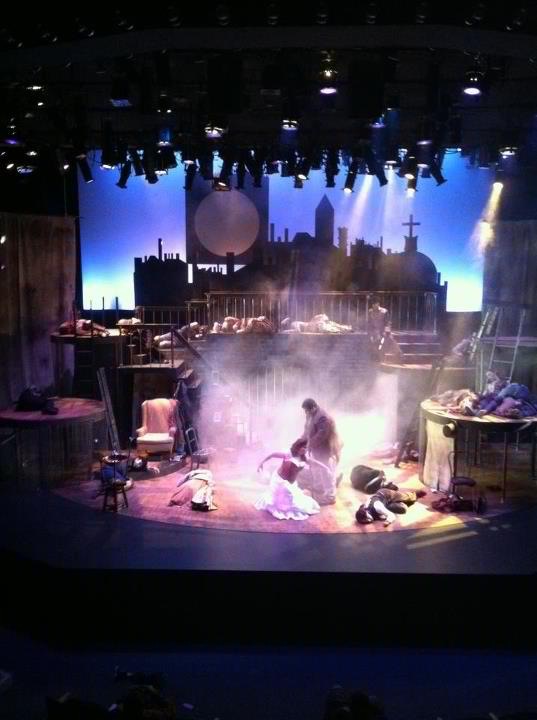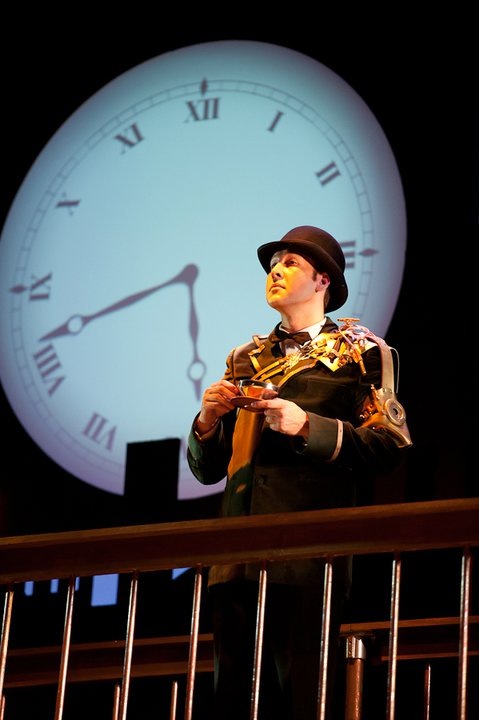|
Jacqueline Lawton: Why did you decide to get into theatre? Was there someone or a particular show that inspired you?
Heather McDonald: The first play I directed was David Mamet's "American Buffalo" in college. I was quiet, bookish, plump and in the hurly burly of louder more aggressive directors choosing actors for projects, I was left with a young man with cerebral palsy, a six foot four linebacker from the football team and one of two African American students in the drama program. No one expected us to pull off a wild, funny, violent, visceral production where we smashed the set apart at every performance. It was exhilarating. What I learned is that it is great fun to direct voices that are very different from mine own as a writer. And that you never know what performance somebody might have inside of them. JL: What was the first play that you ever directed? What did you learn from that experience that remains with you today? HM: Two shows that inspired me - Deborah Warner's production of "King Lear" by KICK Theatre Company at The Edinburgh Festival. Simple, ferocious, passionate, wild. And FEN by Caryl Churchill directed by Les Waters at The Public Theatre. The stage was a field of dirt and scenes in an office or a living room were plopped right down there in the dirt. I loved that! JL: What kind of work do you do to pay the bills? How do you balance this work with your work as a director? HM: The work I do to pay the bills ... hmm, I was going to say playwriting but that pays about 3 cents an hour. I teach at George Mason University. I do other kinds of writing from time to time, librettos, rewrite work, film, television, I get asked to do workshops, now and then I've won fat grants, I hope my mother nominating me for the MacArthur "genius" award will eventually pay off! JL: In DC, we have the Capital Fringe Festival, the Intersections Festival, the Source Festival, the Kennedy Center's Page-to-Stage Festival, the Black Theater Festival, and the Hip Hop Theatre Festival. We also have the Mead Lab at Flashpoint Theater Lab Program. Have you participated in any of these? If so, can you speak about your experience? HM: I've worked at the Source Festival and have mentored projects from GMU students at Fringe and done several page to stage projects via TFA and also taught for years at the Kennedy Center Playwrights Bootcamp thing sponsored by Gregg Henry. JL: How many plays have you directed in the DC area? How many of them were written by women? By playwrights of color? How conscious are you selecting plays by women or people of color when deciding your season? HM: I directed at Round House, Signature, a lot at TFA (Theater of the First Amendment) that just closed after 20 years (sigh), workshop at Woolly Mammoth, and just did devised piece at The Lansburgh Theatre. I've directed lots of readings and workshops and college and university productions. Mostly new work, contemporary and my own. Quite a few by women. "Women of color ..." I was asked to direct Jennifer Nelson's last play but was unavailable and that made me sad because I adore her and I loved her play. Many times, I've gone after particular plays or projects that didn't work out. I don't consciously choose projects by women. I'm drawn to a voice that is different than my own as a playwright. I love the opportunity to work on a big canvas, thus the college and university productions. I like pieces that have some bold theatrical or visual element. JL: How do you feel the DC theatre community has addressed the issues of race and gender parity? How has this particular issue impacted you and your ability to work? HM: Plays written and directed by women are few. There was recently an article about how many women are directing in London. That was encouraging. But it really wasn't very long ago that Garry Hynes and Julie Taymor won Tonys for directing and they were the first women to do so in their respective categories. Kathryn Bigelow winning the Academy Award for "The Hurt Locker." Just a couple years ago. I mean, I think Sofia Coppola was the first woman director to even be nominated. I think a lot of this comes from deeply outmoded ideas about what leadership looks like. JL: If you could be direct at any theatre in DC, which would it be and why? HM: For me, it's more the play or the project, but I would like to direct at a theatre that would employ me. JL: DC audiences are ... HM: smart, savvy and a bit conservative in their tastes. JL: DC actors and designers are ... HM: the best, the absolute best. JL: DC playwrights are .. HM: a supportive, strong community in the making. JL: DC critics are ... HM: meh ... no comment. JL: What advice do you have for an up and coming DC based director or a director who has just moved to D.C.? HM: My advice would be to get to know playwrights and the acting pool here. And do anything Gregg Henry asks you to do. JL: What's next for you as a director? Where can we keep up with your work? HM: I'm more of a remembering-myself writer mode these days. I've been focused for many years on other peoples' work and have turned inward to my own worlds. My directing energies go into my students. I do a big, BIG, Ten Minute Play Festival every year. This year will mark my 7th as Artistic Director. It involved over 100 people last year. I'm hoping to get into a program next summer that will allow me to do collaborative work/devised/built work with a group of artists like I did with STAY. I'm in talks about a couple projects for next year when my youngest daughter leaves for college. One, a workshop, the other a full production. I'm tossing lots of things into the air and trust one of that will be caught.
0 Comments
Your comment will be posted after it is approved.
Leave a Reply. |
My BlogI'm a playwright, dramaturg, and teaching artist. It is here where you'll find my queries and musings on life, theater and the world. My posts advocate for diversity, inclusion, and equity in the American Theatre and updates on my own work. Please enjoy!
Categories
All
Archives
June 2020
Reading List
|



